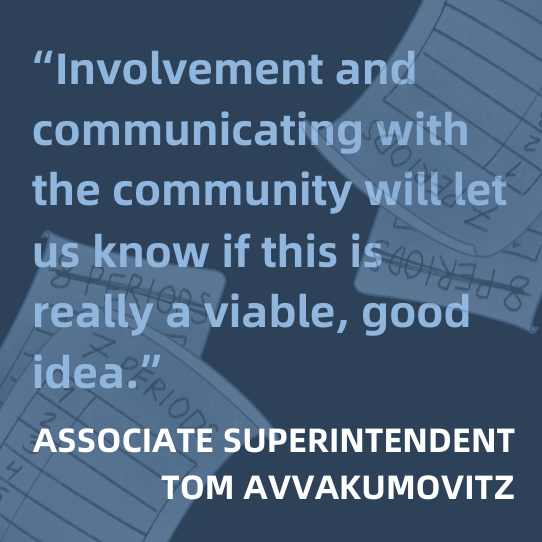An 8-period bell schedule initiative will not be implemented in FUHSD for the 2024-25 school year, as disclosed by Superintendent Graham Clark on Wednesday, Jan. 24. Despite the Fremont Educators Association’s (FEA) vote in favor of the reformed schedule, the plan has been delayed due to logistical challenges.
According to Associate Superintendent Tom Avvakumovits, bell schedules were first standardized throughout FUHSD after returning from online school in 2021. That was when the 8-period day was initially brought to the FEA’s consideration.
“At that time, the decision was, ‘We’re not going to open this can of worms now,’” Avvakumovits said. “And then we revisited it early this school year. The district is still working through a number of questions to determine if it is indeed a possibility for the future.”
Avvakumovits recognizes that the reformed schedule’s advantages could include common open periods for teachers of the same courses, called Professional Learning Communities (PLC), to host collaborative meetings. Another potential advantage is for students to have additional free periods. Despite this, as there are still unknowns regarding its feasibility, there is difficulty in cementing the new schedule.
“We’d like to explore more and talk to teachers in different subject areas,” Avvakumovits said. “Can we cram the same amount of instruction in fewer instructional minutes? If we run a test schedule in the spring, we’ll know more answers to that.”

For students with Individualized Education Plans (IEP), a certain number of minutes of service are specified in each student’s plan. The fewer number of minutes under an 8-period schedule could disrupt educators’ abilities to fulfill students’ IEP.
“We need to think of what we’ll explain to parents and students with IEP,” Avvakumovits said. “Are we reallocating the minutes of service? Are we diminishing them? Involvement and communicating with the community will let us know if this is really a viable, good idea.”
The delay in implementing the schedule has led to varying reactions in the staff community. FEA Negotiations Chair Bonnie Belshe has received diverse feedback from members.
“We communicated a lot and worked within a timeline that had been agreed upon with the district beforehand,” Belshe said. “There’s frustration on that part. Others who were unsure feel like this can give them a little more time in preparation.”
Also undecided on whether or not an 8-period schedule would be beneficial, sophomore Aaron Tang acknowledges that although an extra free period would help his workload and time management, the additional class time that the 7-period schedule provides is necessary in some cases.
“There already isn’t enough time in class,” Tang said. “There’s been some classes I’ve attended where teachers will skip over important sections of lectures. Those classes really need that extra time.”
As the district proceeds with preparations for the 2024-25 school year, a “sandbox” course schedule will be constructed to simulate what an 8-period day would look like for students — the mock schedule will use data from student’s current course selections to determine the feasibility of an 8-period schedule implementation.
“We’re going to use the course selection information from all five sites to build an eight period schedule and see what it really looks like,” Avvakumovits said. “For us to have a more accurate representation of course data will help us in our decision making going forward.”












